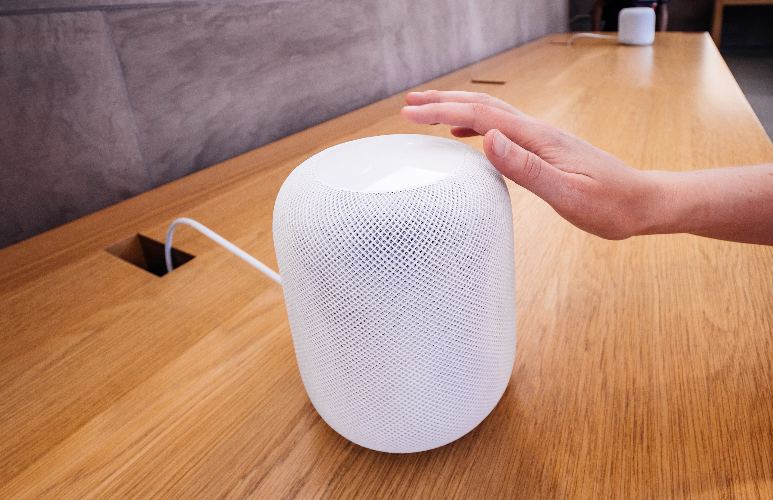The use of wireless smart speakers continues to boom, with half of all online searches this year expected to be performed with voice search.
Almost 112 million people in the United States last year used a voice assistant at least monthly, up almost 10 percent from 2018. The most recent Smart Audio Report by NPR and Edison Research indicated a one-year jump of 78 percent in the number of smart speakers in the United States.
EveryAction, a Washington, D.C.-based fundraising technology company, recently published “A Nonprofit’s Guide to Voice Command Fundraising.” The guide breaks down statistics on the use of smart speakers and also noted how nonprofits are using the devices.
Amazon’s Alexa dominates the smart speaker market with 70 percent share, followed by Google, at 25 percent, and Apple with 5 percent. Hundreds of nonprofits offer Alexa Donations through Amazon Pay, enabling donations by voice.
Users also can teach Alexa a “skill,” a programmable built-in capacity. The American Heart Association (AHA) developed a skill that provides basic information for the most common first aid emergencies, such as how to perform CPR or warning signs of a heart attack. National Audubon Society developed a skill that plays bird songs when prompted by a user. The National Resources Defense Council (NRDC) developed a skill (“Save The Food”) that educates users about whether their food is still safe to eat.
People ages 18 to 29 comprise more than one-third of smart speaker owners. “Younger people are the main proponents of this emerging technology, and it’s important to keep this in mind when building plans to use it,” according to the report. Ownership declines slightly among older populations, with ownership at 29 percent for those 30 to 44 years old, and 26.2 percent for those 45 to 60. Slightly more than one in five people 60 and older own a smart speaker.
“Things are in the early stages, but more and more people are using these devices,” Mike Liddell, general manager, digital, at EveryAction, said in the nine-page report. “Don’t drop everything and put all your eggs in the voice search basket,” he warned. “This is still new and emerging technology. It doesn’t mean you don’t have to send emails or have a website.”
Only 4 percent of the 73,000 businesses analyzed in the Voice Search Readiness Report in 2019 were determined to be fully voice-search ready. Nonprofits can improve their “search visibility” by ensuring that they are “voice-search ready.” That means providing searchers with up-to-date, accurate and accessible information about the organization.
Voice command fundraising can eliminate “barriers and provides ease and convenience to potential donors. It removes the traditional steps of making a donation, such as digitally or by manually writing a check, and enables users to make a donation simply by making a vocal request.”
According to the guide, 87 percent of smart speaker owners bought one to ask questions without needing to type and 57 percent of owners have ordered an item through their smart speaker. More than two-thirds of owners wanted a smart speaker “to make it easier to do things.”











